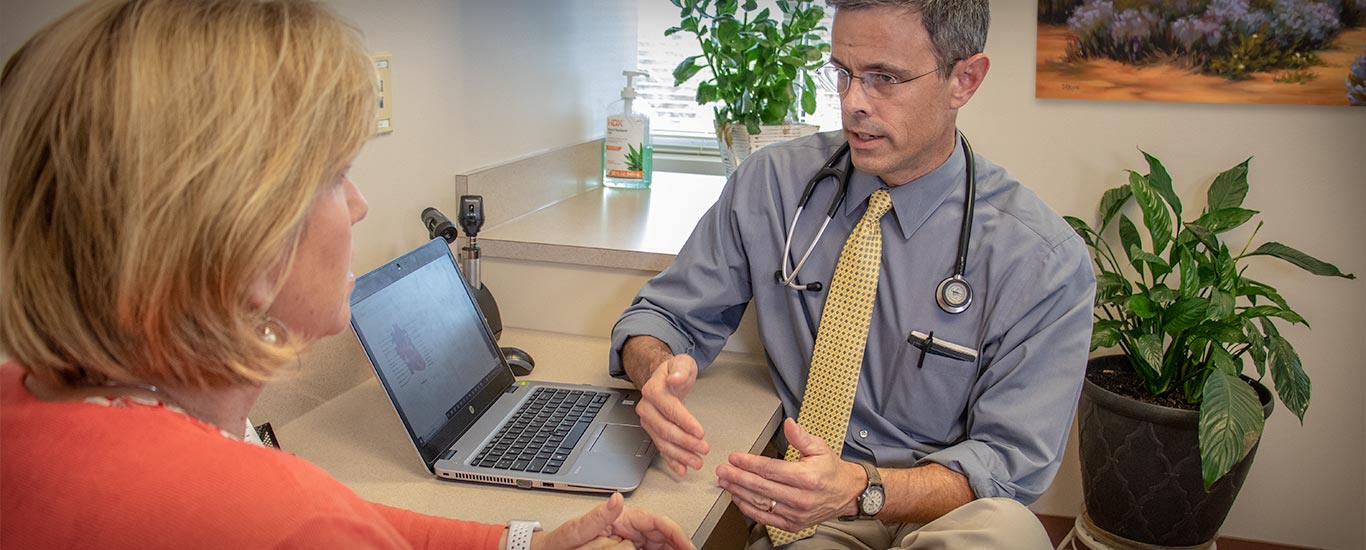
Colds and Flu
Is it the flu or just a cold? A cold and the flu have similar symptoms and are both the result of contracting a virus. There are more than 200 viruses that can cause the common cold and two categories of influenza viruses that have several different strains. Occasionally your primary care doctor needs to run tests to distinguish between a cold versus the flu.
The Difference in Symptoms Between A Cold And The Flu
While a cold and the flu share similar symptoms such as coughing, sneezing, and a sore throat, there are certain symptoms that are more common in one than the other.
Cold Symptoms
- runny nose and congestion
- mild muscle aches
- fatigue
- low grade fevers
Colds generally come on gradually during the course of a few days. Very rarely will they evolve into anything more serious and symptoms typically begin improving after a few days. A more severe cold can take 7-10 days to begin improving and can leave a lingering cough that takes several weeks to resolve.
Flu Symptoms
- dry, hacking cough
- moderate to high fever (not everyone runs a fever with the flu)
- shaking chills
- severe muscle and body aches
- headache
- severe fatigue that can last up to 2 weeks
- nausea and vomiting (most common in children)
The flu comes on quickly and can be severe from the start. It can lead to pneumonia and sinus infections if not treated properly. The worst symptoms of the flu usually last 5-7 days but, you may not feel completely recovered for up to 4 weeks.
Who Is At Risk for the Flu?
Every person is at risk for the flu. However, older adults are especially at risk for complications, as are children and people with chronic health issues such as asthma. If you suspect you might have the flu rather than a common cold schedule a visit with your primary physician.
Cold vs. Flu Diagnosis
Most primary care doctors diagnose a cold or the flu based on your symptoms. For example, the presence of a high fever usually indicates you have the flu rather than just a cold. If there’s any doubt, your provider can request a rapid influenza diagnostic test, which is usually performed by a quick swab of the back of your nose. This type of test can help determine which influenza viruses your body is carrying, so your doctor can prescribe the best course of treatment.
Flu Treatment and Relief
If you have been diagnosed with the flu, your primary care doctor may prescribe an antiviral drug (commonly known as Tamiflu). This prescription medication can help you recover faster and also reduce your symptoms as you heal and fight the virus. Antiviral drugs can also help prevent complications of the flu.
It is recommended that you start treatment as soon as possible, preferably within 48 hours after contracting a flu virus. The longer you wait to start taking antiviral medication, the higher your risk of complications.
In addition to antiviral medication, your primary care doctor will likely recommend plenty of rest and fluids. You will also be asked to avoid public places to prevent spreading the virus and to wear a medical mask if public appearances are required.
How to Treat the Common Cold
To treat a common cold, your primary care physician will likely recommend rest and drinking lots of fluids. You may also be instructed to take over-the-counter medications to help control sneezing and alleviate a stuffy nose or cough.
Steam inhalation may also be prescribed to relieve congestion and open your airways for easier breathing.
Prevention From The Common Cold
There’s no vaccine against the common cold, but you can lower your risks of contracting a cold or the flu by washing your hands frequently during the cold and flu season. Being vaccinated every year is a good way to lower your chances of contracting the flu. The best time to get your flu shot is in fall so that you have time to build immunity before the flu season starts in winter.
Let Us Keep Watch Over Your Health
Whether you’re battling a cold, concerned you may have the flu, or want more information about the flu shot, Dr. Patrick O’Connell is ready to keep watch over your health. While the symptoms of the common cold and the flu can greatly impact your quality of life, our commitment to top-notch medical care can help you find relief.


